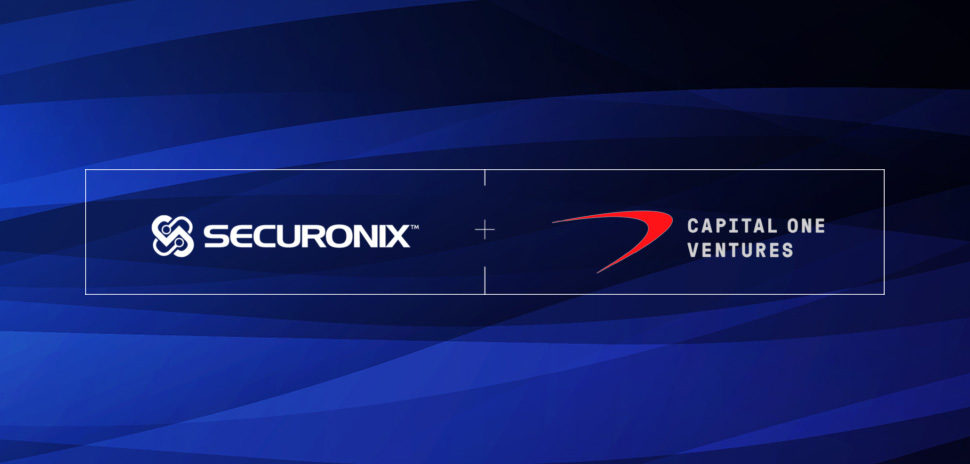As a software engineer, Tiffany Ricks noticed companies were spending a lot of money on building secure labs and making sure their network was protected from infiltrating hackers. But, she says, one area was lacking when it came to successful cybersecurity management: People.
“A company would have an annual cybersecurity training with all of its employees, but it wouldn’t be effective,” Ricks says. “There would be state-of-the-art technology and infrastructure, but there would still be data breaches and cybersecurity violations. I saw this need of the human element of cybersecurity just being ignored.”
So Ricks and her team at Hacware, a Dallas startup that specializes in AI and cybersecurity product development, set out to build a product that would give businesses a metric for tackling the problem from a human standpoint.

[Photo: Rebeca Posadas-Nava]
The newly released product, named Mystery, is what Ricks describes as “one of the first autonomous White Hat Hacking applications that’s powered by advanced machine learning and natural language processing.”
Because 92 percent of malware is installed by human interaction, Ricks says a major risk to a company is human error or a lack of knowledge. So Mystery focuses on preventing data breaches, increasing awareness, and identifying any training gaps.
“With Mystery, we’ve built an AI piece that functions how a hacker nowadays would bypass network security,” Ricks says. “Phishing attempts are making it into an organization’s email box, but look very similar to one of the people normally communicated with.”
How it works: Hacware’s Mystery
As a self-running software, Mystery doesn’t require any setup and immediately connects to email upon installation.
The “plug-and-play” product automatically sets up phishing campaigns to detect who is most in danger of an attack. The goal is to have an employee interact with a phishing attempt, like clicking on a link and exposing a company’s secure network, so the recommendation engine can then show who to train, and how.
“How many threatening emails does an employee get? We predict that if you get a large amount of threatening emails, there’s a high probability that you’re going to respond,” Ricks says. “We’re giving the security or IT team the chance to really chase after other cybersecurity problems, rather than phish or test the employees themselves.”

Ricks hopes Mystery can address the human element of cybersecurity that is largely ignored. [Photo: Rebeca Posadas-Nava]
The predictive technology tests hypotheses on the “vulnerable” employees via what Ricks refers to as an intelligence email. Mystery uses information—who a user communicates with the most, when an Inbox is most viewed, the busiest time in a user’s day—to individually make targets.
Ricks says Mystery can even determine when a user is in a rushed or negative mood, because awareness is reduced, therefore increasing the potential for an attack.
READ NEXT Lock It Up: Dallas-Fort Worth Firms Protect Businesses, Help Fight Cybercrime
The Mystery dashboard then shows who failed, allowing for a select few employees to be trained, overall mitigating the risk of a network invasion.
“There are other companies focused on ‘human-centric cybersecurity,’ but our product uses natural language processing to determine when the best time is to phish,” Ricks says. “Competitors are missing the natural language processing and autonomous features.”
Mystery launched in January in a private base, but is now open on a public beta. Right now, Hacware is b2b, but Ricks says she sees Mystery eventually being used to solve individual consumer problems.
Meet Tiffany Ricks, ‘chief hacker’

[Photo: Rebeca Posadas-Nava]
Minority- and women-owned Hacware, Inc. was founded in late 2016 with the goal to bring innovation to companies. Ricks, who is the CEO, had started many other companies prior, even successfully exiting the last one before Hacware.
With a background in computer science and working as a DOD contractor, Ricks knew how to build software solutions, but she didn’t know how to run a business. So she learned.
“When kids were thinking about playing games, or all of the other things kids think about, I was thinking about business,” she says. “I was thinking about what kind of company I was going to own. My dad’s an entrepreneur who owns a photography company and grew his business from an idea. Watching [him] sparked my passion of entrepreneurship.”
Even during her time in a corporate environment, Ricks had this desire to build products and directly communicate with customers. “Entrepreneurship is very hard,” she says. “Having a business is like getting punched in the face everyday.”
But despite starting Hacware as a bootstrapped business, Ricks has been able to grow the company into revenue-positive, and is currently in the process of raising her first seed round. Hacware was recently handpicked by Google for Startups’ Startup Grind to participate in the 2019 Startup Grind Global Conference on Feb. 12-13.
She was even able to turn the corporation she previously worked for into one of Hacware’s first customers.
“That’s a passion of mine: innovation,” Ricks says. “I need to do something that I feel like is going to propel society forward. And that’s our mission.”
![]()
Get on the list.
Dallas Innovates, every day.
Sign up to keep your eye on what’s new and next in Dallas-Fort Worth, every day.






























